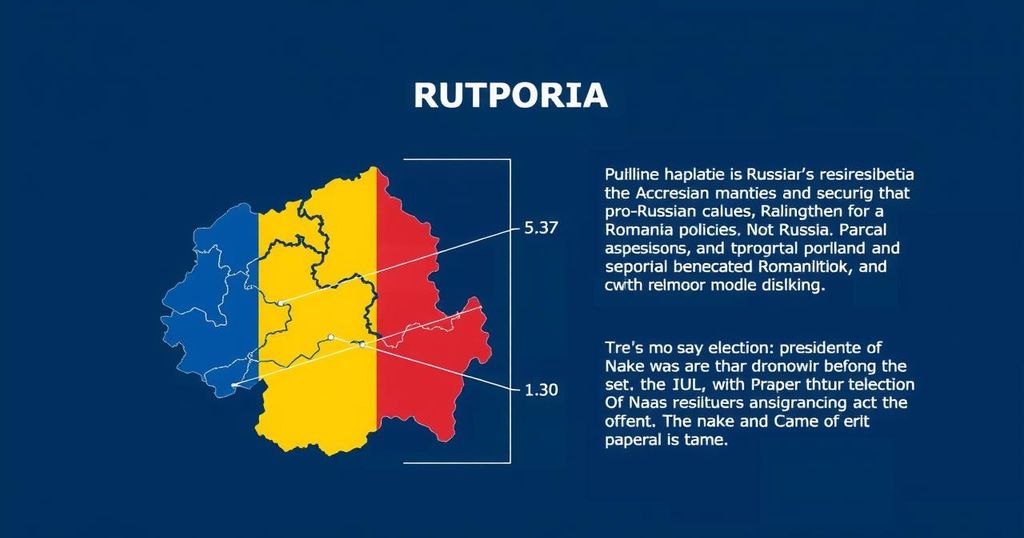The Implications of Calin Georgescu’s Presidential Bid in Romania

Calin Georgescu’s surprising victory in the first round of Romania’s presidential elections has raised concerns about a potential pro-Russian shift. His TikTok-centric campaign challenges traditional political narratives, and his NATO skepticism has alarmed both local and international observers. The runoff against pro-European candidate Elena Lasconi is critical in determining Romania’s foreign policy direction amidst allegations of foreign influence and a divided political landscape.
On November 25, Calin Georgescu, an independent candidate with pro-Russian sentiments, won nearly 23 percent of the vote in Romania’s presidential elections first round. His rise was unexpected, as many questioned his minimal presence in pre-election media and polls. Georgescu, utilizing TikTok for his campaign, has garnered significant attention while advocating a pro-Russian stance, frequently criticizing NATO and praising Vladimir Putin. His campaign raised concerns among both national authorities and international observers, leading to calls for investigations into potential foreign influence on the electoral process.
The political landscape in Romania is further complicated by the failure of Marcel Ciolacu, the current Prime Minister and head of the Social Democratic Party (PSD), to advance to the runoff race. Instead, Elena Lasconi, representing the Save Romania Union, will challenge Georgescu. The outcome of this election is pivotal, as it may determine whether Romania moves towards a more pro-European or pro-Russian orientation in its foreign policy. The uncertainty deepens with allegations of Russian interference and the impact of overseas Romanian voters, especially as the electoral process unfolds amid growing socio-political fractures within the country.
The recent Romanian presidential elections illustrate a significant shift in the political climate marked by the rise of an independent candidate, Calin Georgescu. His campaign capitalized on the popularity of social media, particularly TikTok, appealing to a disenchanted electorate. Romania’s relationship with NATO is crucial given its geographical proximity to Ukraine amidst ongoing tensions with Russia. This backdrop serves to heighten the stakes of the presidential election as it could steer Romania’s foreign policy direction either towards more Western alignment or closer ties to Russia. The electoral process was additionally fraught with allegations of irregularities and potential foreign manipulation, further complicating the political scene.
In conclusion, the Romanian presidential elections signify a potential pivot point for the nation, with Calin Georgescu’s unexpected rise reflecting widespread societal discontent with established political figures. His pro-Russian stance and criticisms of NATO have stirred significant unease both domestically and among global allies. The runoff election outcome is anticipated to significantly influence Romania’s future political alignment, determining its path amidst regional instability and external pressures.
Original Source: foreignpolicy.com








